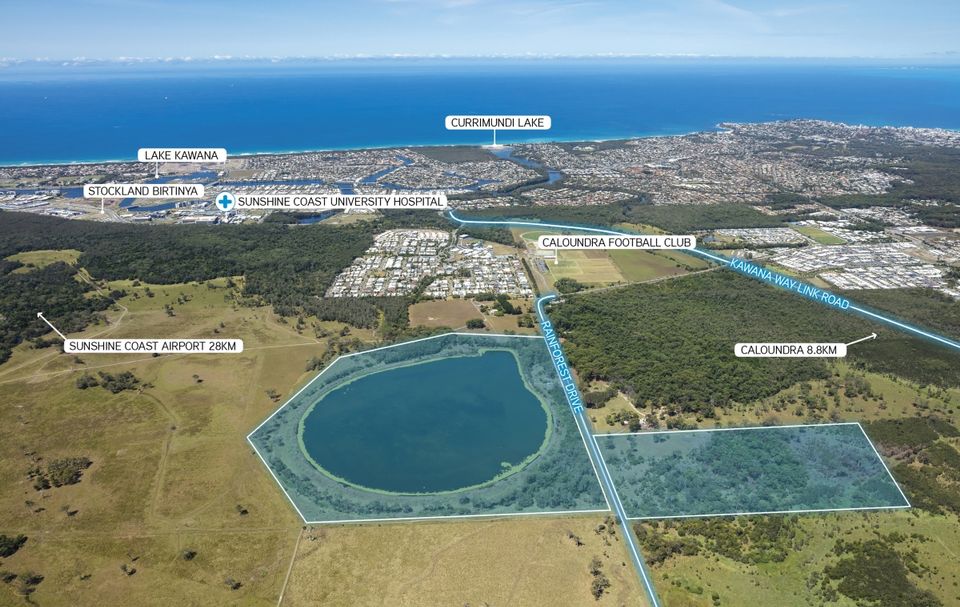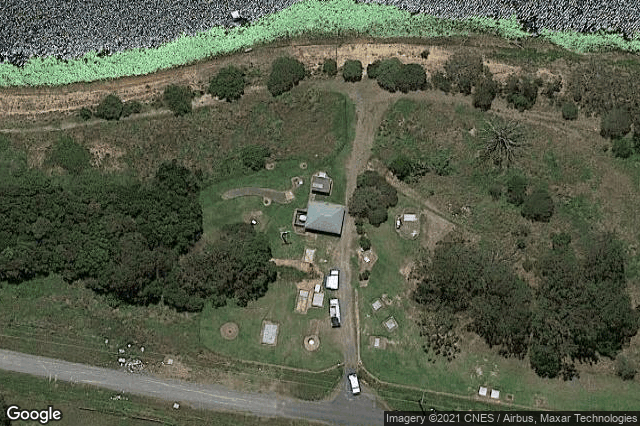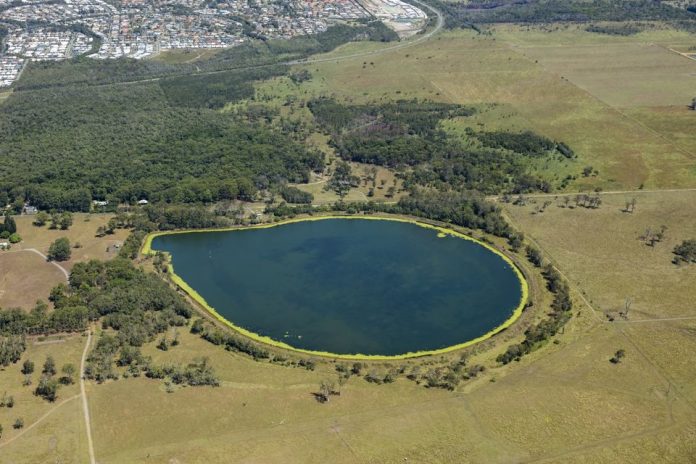A desalination plant could be built at Caloundra in order to shore up the Sunshine Coast’s water supplies in the future.
Sunshine Coast News understands that a site in Meridan Plains, which Seqwater purchased for $2.255 million in 2019, is being considered for a major plant.
The land is at 58 Rainforest Drive, to the west of Woodlands Park and about 5km directly west of Wurtulla beach as the crow flies.
The acquisition followed a statement in 2018 that Seqwater was considering desalination because the region would need a new source of bulk water over the next two decades.
While SCN was informed the solution was gaining traction, Seqwater — the state’s bulk water supply authority — has been tight-lipped regarding any progress.
A spokesperson said the “next iteration” of the region’s water program was due to be completed sometime in 2022.
“Seqwater does hold a parcel of land near Meridan Plains on the Sunshine Coast while we plan adaptively for future water supply,” said an Seqwater spokesperson.
“No decisions have been made on any potential development of this land.”
The Sunshine Coast needs a new source of bulk water in coming decades as a rapidly growing population places a major drain on supplies.
The number of residents is expected to increase by some 200,000 people over the next 20 years, including burgeoning estates like Aura, Harmony and the proposed Beerwah East.
Experts say a desalination plant could help secure the region’s water supplies against the combined impacts of climate change and massive population growth.
It is considered a logical, and perhaps the only option, due to the unpopularity of building new dams, unavailability of suitable dam sites in the area and public perception associated with recycling sewage water.
Water would be pumped to the plant from the sea and converted into fresh water for drinking in order to counteract the problem of unreliable rainfall.
However, a water scientist has warned desalination could become a costly “partial-white elephant”, requiring huge amounts of energy to run.
In 2009, the State Government proposed Marcoola for a potential desalination plant but that idea was killed off.
For the past few years, Seqwater has been reviewing South-East Queensland’s future water needs and is expected to release its updated Water Security Program in 2022.
The program “sets out the direction” for SEQ’s drinking water over the next 30 years.
Sunshine Coast News understands a desalination plant at Meridan Plains is among the water options and could be brought forward.
Help keep independent and fair Sunshine Coast news coming by subscribing to our free daily news feed. All it requires is your name and email. See SUBSCRIBE at the top of this article
But desalination plants are controversial for their massive cost to build, extreme energy needs for pumping and filtration and the production of salty waste which is dumped back into the ocean.
The cost of water production is more expensive through desalination than recycling and standard water treatment.
South-East Queensland’s water grid already has one desalination plant on the Gold Coast, which is switched on when supplies need to be ramped up, for example when Brisbane’s dams run low.
The rest of the time the $1.2 billion plant at Tugun remains in stand-by mode.
Seqwater was not giving anything away regarding a Caloundra plant when approached by SCN.
“Seqwater will continue to update the community regarding future water sources, as part of our detailed planning,” a spokesperson said.
The spokesperson confirmed the “next iteration” of the region’s water program was due to be completed in 2022.
“This assessment will build on the current program, taking into account changing factors such as population growth, additional drinking water demand and future supply options.”

South-East Queensland’s water grid currently has the lowest water levels of all Australian capital city areas at 55.4 per cent while Sydney, Melbourne and Canberra are close to 100 per cent.
The Sunshine Coast’s two main dams — Ewen Maddock near Mooloolah Valley and Baroon Pocket near Montville — are at 100.9 per cent and 100.4 per cent after recent downpours, but considered small and quick to drain.
Dr Ian Wright, a senior lecturer in environmental science at the University of Western Sydney, said desalination on the Coast would be “big news” and he understood why it was being explored.
“It’s appropriate to be considering those options when so many people are moving into the SEQ area; I can completely see why the water authorities are considering all options,” said Dr Wright.
“At the moment you’d have to say there is a drying climate and the population is going up, so you’ve got two trends going in the wrong way here.”
However, Dr Wright said there were a number of downsides to desalination, the most obvious of which was its high energy needs.
“They use gargantuan amounts of electricity and whether we like it or not, most of our power grid is coal-fired so we will be burning more coal to create fresh water which seems pretty crazy in this day and age to be doing it,” he said.
“Then there are issues with the highly briney water it creates as well. It goes back to the ocean.”
Dr Wright said although desalination was the favoured option of Australia’s big cities, he was not a fan as there were other cheaper and more efficient alternatives.
“Adelaide, Melbourne, Sydney, Perth, Gold Coast have all built desalination plants and most of the time they just sit there, so they’re partial-white elephants,” he said.

Dr Wright said the better option was recycling water and adding it to urban supplies because it was cheaper, it reused an existing source and Seqwater was already set up for that.
Recycled water has long been politically unpopular because of the public perception of sewage.
“When you have a huge population growth like the Sunshine Coast, that seems a smart way to use water rather than just using water once,” said Dr Wright.
“Surely now’s the time to break the glass and push the button on the recycled water.”





